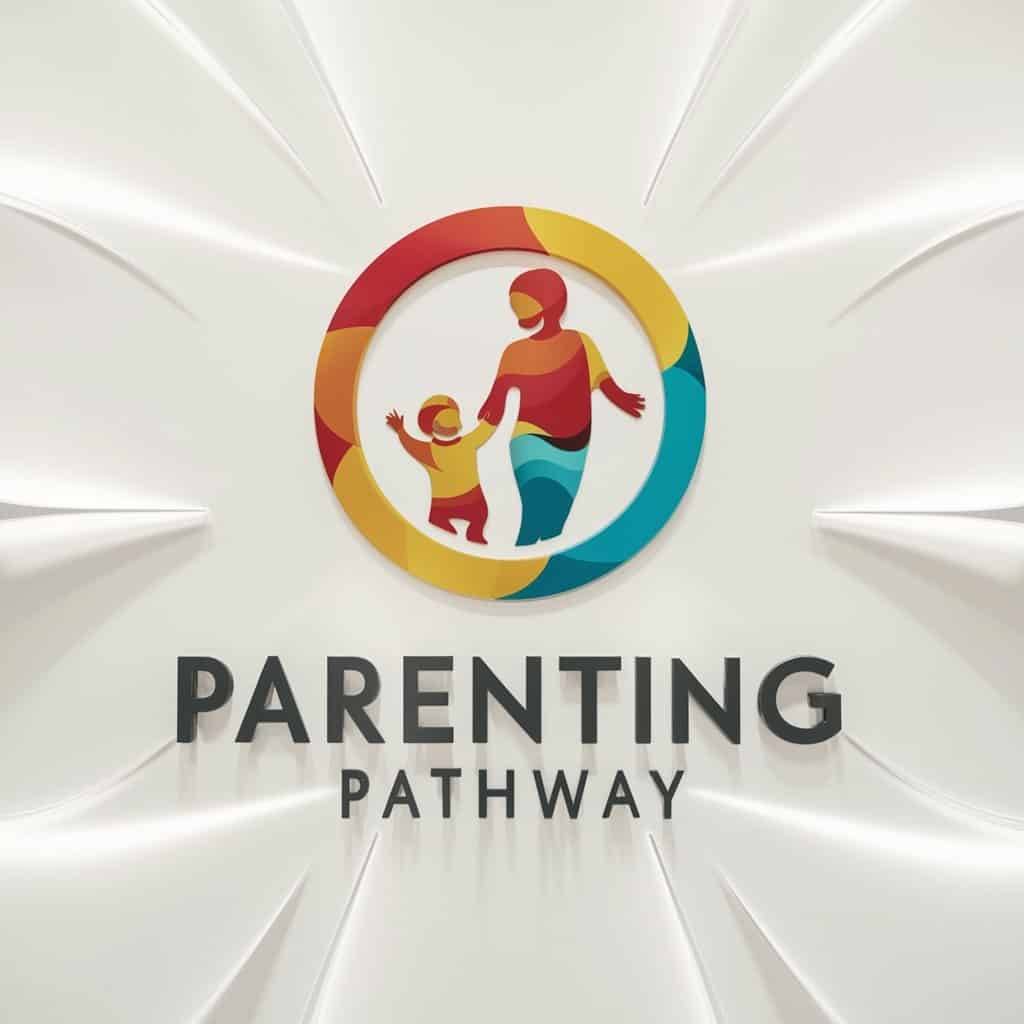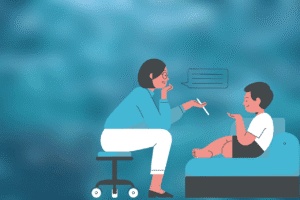Understanding the Differences: Child Psychiatrist vs Child Psychologist
Back to Blog
Introduction to Child Mental Health Professions
The importance of mental health in children and adolescents cannot be overstated, as it significantly affects their overall development, emotional well-being, and academic performance. The early years of a child’s life are critical for laying the foundation for effective mental health. During this period, children experience various stressors, including family dynamics, social interactions, and academic pressures, which can lead to psychological issues if not addressed timely. It is essential to recognize that mental health in young people is just as important as physical health, and fulfilling their mental health needs can facilitate positive developmental outcomes.
Two key professionals who play vital roles in supporting children’s mental health are child psychiatrists and child psychologists. While both professions are dedicated to understanding and treating mental health issues, they approach this goal from distinct perspectives. Child psychiatrists are medical doctors who specialize in diagnosing and treating mental health disorders. They can prescribe medication and are often involved in more severe cases where medical intervention may be necessary. Their clinical training emphasizes a thorough understanding of how psychological problems can interconnect with biological factors, allowing them to provide a more holistic treatment approach for children at risk.
On the other hand, child psychologists are experts in the assessment and treatment of emotional and behavioral issues but typically do not prescribe medication. Instead, they utilize various therapeutic techniques, such as cognitive-behavioral therapy and play therapy, to help children navigate their challenges. Through their work, psychologists provide a supportive environment that fosters emotional expression and problem-solving skills, ensuring that children can develop resilience and healthier coping strategies.
Both child psychiatrists and child psychologists are crucial in providing comprehensive mental health care to young individuals. By understanding their unique roles, caregivers and educators can more effectively collaborate to ensure that children receive appropriate support for their psychological well-being.
What is a Child Psychiatrist?
A child psychiatrist is a medical doctor who specializes in diagnosing and treating mental health disorders in children and adolescents. To become a child psychiatrist, one must complete a medical degree followed by a residency in psychiatry, which may be further specialized in child and adolescent psychiatry. This extensive medical training equips these professionals with a deep understanding of psychological conditions as well as the biological factors that may contribute to mental health issues.
The primary focus of a child psychiatrist is on diagnosing mental health conditions through a comprehensive evaluation process that takes into consideration biological, psychological, and environmental factors. Some common disorders treated by child psychiatrists include anxiety disorders, depression, attention-deficit hyperactivity disorder (ADHD), and autism spectrum disorders. Unlike child psychologists, who primarily use therapeutic methods for treatment, child psychiatrists have the qualifications to prescribe medications, allowing them to address both neurobiological and psychological aspects of mental health.
When it comes to therapy, child psychiatrists often take a holistic approach, which may include medication management in conjunction with psychotherapy or counseling. They frequently collaborate with other mental health professionals, including child psychologists and social workers, to provide a comprehensive treatment plan tailored to the child’s needs. This collaboration ensures that various facets of a child’s life, including emotional, academic, and social functioning, are taken into account. Furthermore, child psychiatrists may work closely with parents and caregivers to educate them about the child’s condition and to foster a supportive home environment.
In summary, a child psychiatrist plays a crucial role in the mental health landscape for children, employing both their medical and therapeutic expertise to address a wide range of psychological disorders. This unique combination of skills establishes them as vital contributors to the well-being of young individuals facing mental health challenges.
What is a Child Psychologist?
A child psychologist is a mental health professional who specializes in diagnosing and treating emotional, social, and behavioral issues in children and adolescents. They focus on understanding children’s psychological development and the myriad of factors that can influence their mental health. Typically, child psychologists hold a doctoral degree in psychology, such as a Ph.D. or Psy.D., and they are trained extensively in human development, child psychology, and therapeutic techniques.
Child psychologists are equipped to perform psychological assessments, which often include various standardized tests, interviews, and observational methods. These assessments can help identify conditions such as anxiety disorders, depression, autism spectrum disorders, and behavioral problems. Once a diagnosis is established, child psychologists may employ several therapeutic methodologies tailored to the needs of the child. Common approaches include play therapy, talk therapy, and cognitive-behavioral therapy (CBT).
Play therapy is particularly significant, as it allows children to express their feelings and experiences through play rather than verbal communication, which can be difficult for them. Talk therapy, on the other hand, provides a platform for older children and adolescents to discuss their thoughts and feelings in a safe environment. Behavioral therapy focuses on identifying and modifying negative behaviors by using reinforcement techniques, which can be highly effective for younger children.
Through these methodologies, child psychologists aim to provide a supportive framework for children to explore their emotions and thoughts. They work collaboratively with parents, caregivers, and other professionals to ensure comprehensive care. This interdisciplinary approach is key to fostering a child’s well-being and improving their ability to navigate life’s challenges. By understanding the holistic needs of their clients, child psychologists contribute significantly to promoting positive mental health outcomes.
Educational and Professional Requirements
The educational pathways for child psychiatrists and child psychologists reflect significant differences in their training, areas of expertise, and licensure requirements. Both professions are essential in addressing the mental health needs of children and adolescents, but they follow distinct paths to reach their respective roles.
Child psychiatrists are medical doctors who specialize in the diagnosis and treatment of mental health disorders. Their journey begins with a Bachelor’s degree, followed by a medical degree, which typically requires four years of study. After earning their MD or DO, they complete a residency in psychiatry, lasting an additional four years. Many child psychiatrists choose to further specialize through a fellowship in child and adolescent psychiatry, which can take an additional two years. The total educational path for a child psychiatrist typically extends to a minimum of 12 years, culminating in the attainment of board certification and state licensure to practice medicine.
In contrast, child psychologists pursue a different educational trajectory. Most child psychologists hold a Doctoral degree (PhD or PsyD) in psychology, which requires an undergraduate degree followed by 4-7 additional years of graduate study, including coursework, internships, and the completion of a dissertation or research project. After earning their doctorate, they must complete postdoctoral supervised experience, which often lasts 1-2 years, to develop practical skills in their area of focus. Child psychologists typically obtain licensure by passing a national examination and meeting state-specific criteria, which may vary significantly.
In summary, the differences in educational and professional requirements for child psychiatrists and child psychologists underscore the unique roles each professional plays in the mental health landscape for children. While both professions are dedicated to enhancing child mental health, they come from different educational backgrounds and possess distinct qualifications that define their practice.
Treatment Approaches: Therapy vs Medication
Child psychiatry and child psychology represent two distinct yet complementary fields within pediatric mental health, each offering unique treatment approaches tailored to the needs of young patients. Child psychiatrists typically emphasize the medical model of mental health treatment, often utilizing pharmacological interventions as a primary method of care. This approach is particularly common in cases where mental health disorders, such as severe anxiety, depression, or attention deficit hyperactivity disorder (ADHD), may necessitate immediate symptom relief through medication. Psychiatrists, holding medical degrees, can diagnose mental health disorders and prescribe medication, enabling them to intervene effectively in situations requiring medication to stabilize a child’s mental health.
In contrast, child psychologists focus on therapeutic techniques, such as cognitive behavioral therapy (CBT), play therapy, and family therapy. These methodologies aim to address a child’s behavioral and emotional challenges by fostering understanding and coping mechanisms. Child psychologists employ principles of psychology to analyze issues affecting a child’s mental health, assisting them in understanding their thoughts and feelings while promoting healthy behavioral changes. This approach is often beneficial for children dealing with emotional distress, learning difficulties, or issues arising from life transitions, such as parental divorce.
The treatment paths of child psychiatrists and psychologists may intersect, particularly when a child’s condition warrants a combination of medication and therapy. It is not uncommon for a child psychiatrist to work collaboratively with a psychologist, tailoring treatment plans that integrate pharmacological and therapeutic strategies. This multidisciplinary approach ensures a more comprehensive consideration of the child’s mental health, thereby facilitating a well-rounded support system. Ultimately, selecting the appropriate treatment depends on the individual circumstances and needs of the child, making the collaboration between these two mental health professionals invaluable.
Common Conditions Treated by Each Professional
Child psychiatrists and child psychologists play significant roles in addressing mental health issues in children and adolescents; however, they often focus on different facets of these conditions. Understanding the common psychological and psychiatric disorders they treat is essential for parents seeking appropriate care for their children.
Child psychiatrists are typically equipped to diagnose and treat a wide range of complex mental health conditions. They are medical doctors who can prescribe medications and conduct in-depth evaluations. Common conditions managed by child psychiatrists include Attention-Deficit/Hyperactivity Disorder (ADHD), where children struggle with attention, hyperactivity, and impulsiveness; and mood disorders, such as major depressive disorder, which can lead to a persistent feeling of sadness, irritability, and changes in behavior. Additionally, psychiatrists address severe anxiety disorders that may manifest as excessive worry or phobias, as well as disorders like bipolar disorder, which involves extreme mood swings.
On the other hand, child psychologists primarily focus on therapeutic interventions. They generally treat conditions like anxiety and depression through various techniques such as cognitive-behavioral therapy (CBT) and play therapy, which are tailored to the child’s developmental stage. Psychologists may also help children deal with behavioral issues linked to learning difficulties or social challenges. Additionally, they work with families to address issues that may stem from relational problems or traumatic experiences, employing methods that foster resilience and coping strategies.
While both professionals may treat overlapping conditions, the approaches and tools they utilize can differ significantly. Parents are encouraged to consider these distinctions when seeking help for their children, as they can impact the effectiveness of treatment and overall outcomes.
Collaborative Approaches in Child Mental Health
The treatment of mental health issues in children necessitates a multifaceted approach that incorporates the expertise of both child psychiatrists and child psychologists. These professionals, while serving distinct roles, often collaborate to provide comprehensive care for younger patients. This collaboration is crucial, as it allows for an integrated method of addressing the myriad of challenges that children may face. Child psychiatrists, who possess medical training, focus primarily on diagnosing and treating mental health disorders through medication management and biological interventions. Conversely, child psychologists tend to concentrate on therapeutic strategies and behavioral interventions, employing techniques such as cognitive behavioral therapy to help children cope with emotional and psychological difficulties.
In many cases, child psychiatrists and psychologists will refer patients to one another based on the specific needs of the child. For instance, a child exhibiting severe behavioral issues may be initially assessed by a psychiatrist who then prescribes medication. However, alongside this pharmacological treatment, the psychiatrist may recommend that the child engage in psychotherapy with a psychologist to address underlying emotional issues. This synergy enriches the treatment process, fostering a more holistic approach to mental health care.
Moreover, collaboration extends beyond referrals; child psychiatrists and psychologists often communicate directly regarding the treatment progress of their shared patients. This ongoing dialogue is fundamental to optimizing care, as it enables both specialists to remain informed about the child’s status and adjust treatment strategies accordingly. Collaborative meetings and shared treatment plans are also beneficial in ensuring consistency in care. Parents and guardians are encouraged to facilitate this collaboration by maintaining open lines of communication with both professionals. Through such partnerships, practitioners can harness their respective strengths, ultimately paving the way for healthier outcomes in child mental health.
Signs Your Child May Need Support
Determining whether a child requires professional support can be challenging for parents. It is vital to be attuned to various signs and symptoms that may suggest the need for intervention from a child psychiatrist or child psychologist. Early recognition can be key in addressing potential issues before they escalate.
One significant indicator is noticeable changes in behavior. This can manifest as increased irritability, aggression, or withdrawal from friends and family. If a previously social child suddenly avoids interaction or experiences extreme mood swings, these behavioral shifts may warrant further evaluation. Additionally, declining academic performance may signify underlying emotional or psychological issues such as anxiety or depression.
Parents should also pay attention to physical symptoms that may accompany emotional distress. Frequent complaints of headaches, stomachaches, or other unexplained ailments can be manifestations of mental health struggles. A child may exhibit these physical symptoms when grappling with anxiety, sadness, or stress, thus highlighting the need for professional support.
Furthermore, significant life changes, such as moving, parental separation, or the loss of a loved one, can profoundly impact a child’s mental well-being. In such cases, seeking help from a child psychologist or psychiatrist may assist in navigating the emotional turmoil that accompanies these transitions.
Lastly, trauma exposure—whether through direct experience or witnessing distressing events—can lead to lasting psychological effects. Signs of trauma may include nightmares, excessive fear, or sudden changes in behavior and should not be overlooked. Consulting a mental health professional in these situations is essential for understanding and addressing the child’s specific needs.
Being vigilant and aware of these signs can empower parents to seek the appropriate support for their children, ensuring their emotional and psychological health is prioritized.
Conclusion: Choosing the Right Professional for Your Child
As parents navigate the complex world of mental health for their children, it is pivotal to understand the distinctions and similarities between child psychiatrists and child psychologists. Both specialists are essential in addressing mental health challenges, yet they differ significantly in their training, services, and treatment modalities. A child psychiatrist, equipped with a medical degree, can prescribe medications and focus on biological aspects of mental health disorders. In contrast, a child psychologist typically concentrates on psychological testing and treatment through various therapeutic techniques, such as cognitive-behavioral therapy or play therapy.
In determining which professional may be most suitable for a child, parents should first consider the nature of the child’s concerns. If a child exhibits symptoms suggestive of an underlying medical condition requiring medication—such as severe anxiety, depression, or attention disorders—a child psychiatrist may be the optimal choice. On the other hand, if the focus is primarily on behavioral issues, developmental challenges, or navigating emotional difficulties, a child psychologist may provide the appropriate therapeutic support.
Furthermore, it is essential for parents to assess their child’s specific needs carefully, including the severity of symptoms, the presence of co-occurring conditions, and personal preferences regarding treatment approaches. Consulting with primary care physicians or educational professionals can provide additional insights into the most appropriate avenue of support. Ultimately, fostering an open dialogue with either professional will facilitate a collaborative environment tailored to the child’s needs, promoting mental wellness and emotional development.
In conclusion, whether choosing a child psychiatrist or a child psychologist, understanding the distinctive roles and services each offers can guide parents in making the best decision for their child’s mental health journey.




Leave a Reply